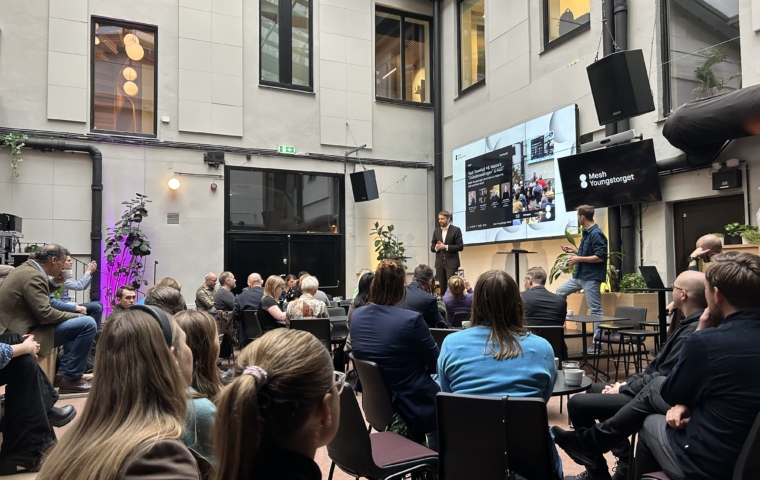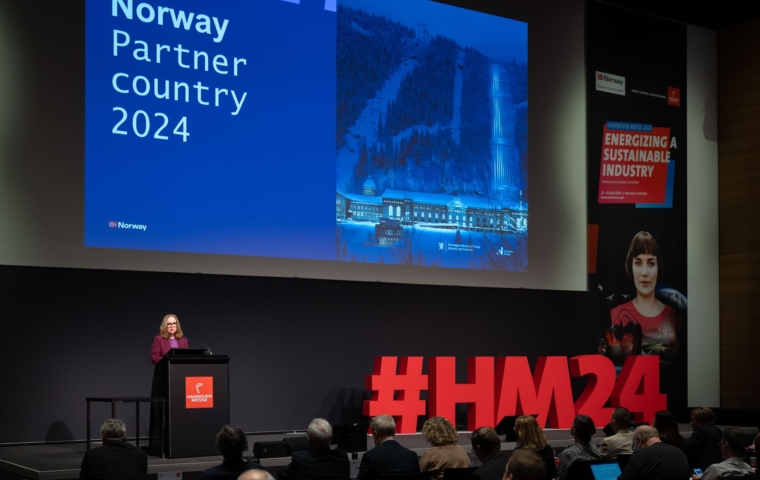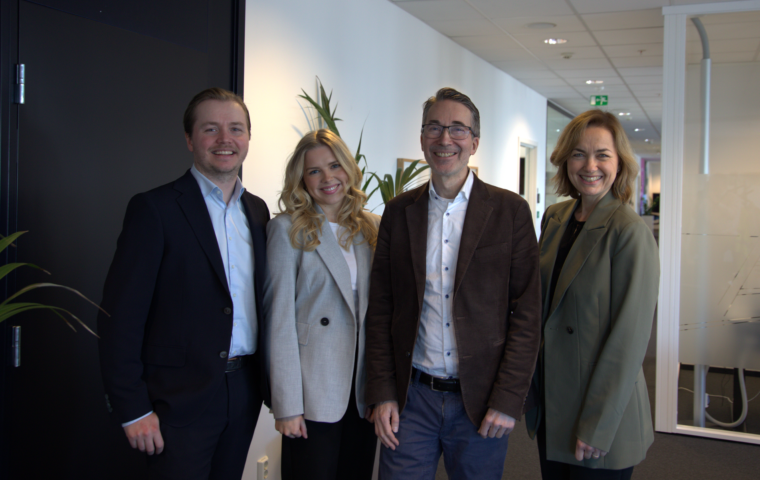Johan Persson on the role of banks in the energy transition and what Swedes can learn from their neighbors

In our debut Energy Portrait, we introduce Johan Persson, the new Country Manager at SEB in Norway. With almost twenty years in the company, his journey from novice to seasoned leader mirrors a deep understanding of Northern business and the energy sector. As we sit down for a conversation with the new Country Manager, we discover his perspectives on cultural differences, the dynamic shifts in the energy sector, and the role of banks in the sustainability transition.
Adapting to the Norwegian market
“When I started at SEB in Norway in 2005, I didn’t know much about Norwegian business and customers, so it was quite a steep learning curve,” Johan Persson begins. He pauses briefly, before continuing, “You see, not everyone studying Economics in Sweden knows what Frontline or Norsk Hydro is, so you kind of start at a disadvantage in terms of information.”
Today, it is crystal clear that Johan Persson has a solid grasp of the Norwegian business landscape.
His subsequent trajectory within SEB tells a story of remarkable growth and achievement. With a recognized track record of success and a reputation as a respected leader, Persson has been instrumental in shaping and expanding SEB’s presence in Norway.
“I’ve had quite a few different jobs in the bank,” Johan says. He fondly recalls some career milestones and highlights his time as a credit analyst as particularly useful.
“You’re going to encounter people or stakeholders who might have a slightly different view of things, so you have to learn to defend your opinion and message, in a way.”
Johan has worked extensively with both Swedish and international clients but has spent most of his time serving Norwegian customers in the Norwegian market.
“Norwegian culture is more agile”
Drawing from his experiences in both Sweden and Norway, Persson has spotted the distinct cultural nuances that shape Nordic business contexts.
“Norwegian culture is more agile… Less hierarchical than in Sweden,” he observes, advocating for a combination of the best practices from both nations.
“Norwegians have a trial-and-error mindset that I see many advantages in, complementing the Swedish culture’s strengths in planning and organization.”
After many years in Norway, Persson even thinks that Swedes could learn a thing or two from Norwegians.
“Dare to be a bit more agile and a bit less bureaucratic, to pick up the speed a bit. Sweden could benefit from that,” Persson suggests laughingly.
From turmoil to transformation in the energy sector
As the conversation turns to the broader energy sector dynamics, Persson’s demeanor shifts subtly. His heightened focus signals a genuine interest in the topic.
In his former role as Global Head of Energy, Persson gained direct insights into the challenges and opportunities within the energy sector from a financial perspective.
Marked by Russia’s invasion of Ukraine and the disruption in energy supply chains, Johan describes the last years as turbulent.
“It’s been intense,” Persson notes, adding that these geopolitical events underscore the urgency of energy security and the ongoing transition towards renewables.
While there has been an investment surge in renewable energy in Northern Europe, SEB’s focus region, Persson points out the challenges posed by increased market volatility and liquidity demands.
“It’s also in these situations that we, as a financial partner and advisor, really can make a difference for our customers,” Johan says.
Persson takes a moment to reflect. “It’s been exciting,” he muses, “exciting with a tragic driver behind it.”
Persson had been Global Head of Energy for two years when he, to his surprise, was asked to take the job of Country Manager at SEB Norway.
“I wasn’t really looking for a new job, but it was quite easy to say yes,” he admits with a chuckle.
Johan Persson steps into the role of Country Manager at SEB in Norway
Persson’s approach to his new role at SEB in Norway reflects a blend of pragmatism, modesty, and a deep appreciation of the bank’s greatest asset: its people.
“It’s a bit of a big task,” Johan acknowledges humbly. Yet, with time, Johan has found confidence in his deep-rooted familiarity with SEB and its customers.
“I feel that I have a good understanding of what kind of organization we are,” Persson affirms. “So now it is about making incremental progress and modifications rather than radical change.”
The new Country Manager highlights the importance of cultivating the right work environment and people.
“The bank is a people’s business,” he says. “What’s more important than our employees? If they have the right attitude and motivation, our customers will be satisfied.”
Driving the transition towards a greener economy
Central to Persson’s vision for SEB in Norway is the continued focus on the energy sector, sustainability, and close dialogues with customers about the transition journey ahead.
And when it comes to sustainable finance, SEB has been in the game for a long time.
“We were involved in developing and implementing the first green bond in the global market together with the World Bank in 2008,” Persson states.
Despite being a smaller player on the international stage, SEB has consistently been at the forefront of sustainability, a commitment that has only intensified over the years.
“We have a strategy called ‘The Green, The Brown, and The Future,’ which outlines our approach to sustainability,” Persson explains. “Our focus is on mobilizing resources toward green projects, reducing fossil fuel content, and aligning our portfolio with long-term sustainability goals.”
Johan clearly asserts that banks and capital markets play a vital role in directing the transition towards a greener economy.
“The trend in the banking world is that everyone transitions towards having more green capital than fossil capital,” Johan states. This shift, he believes, will not only reshape capital markets but also accelerate the overall transition to sustainability by influencing the cost of capital over time.
Norway’s energy future
Looking ahead, Persson sees Norway’s potential to emerge as a global leader in the energy industry. Abundant natural resources and an agile mindset could make for a great starting point, he thinks.
But Persson remains grounded, emphasizing the importance of balancing boldness with risk management.
“You must dare to be a bit forward-looking and then you need a risk-based implementation strategy,” Johan says with a twinkle in his eye, reminding us that he is a Swede in Norway after all.
Energy Portraits
Get to know the diverse voices and talents driving the energy transition with “Energy Portraits” – an article series that shines a spotlight on the people behind the progress. From technical experts to project managers, each profile offers a unique perspective on the journey towards a sustainable energy future. For inquiries or nominations, please contact Helena Jensby at Energy Valley, Helena.jensby@energyvalley.com.


